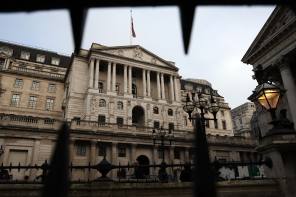

The UK economy grew by 0.1 per cent in February 2024, following a 0.2 per cent rise in January 2024 indicating the UK’s period of technical recession may be short-lived.
According to the ONS, the production sector was the largest contributor to the growth in GDP driven by a rise in manufacturing output.
Figures also showed real GDP is estimated to have grown 0.2 per cent in the three months to February 2024, compared with the three months to November 2023.
Some industry experts believe although the UK may be entering a positive period, there is still a long way to go as growth still remains weak.
Richard Carter, head of fixed interest research at Quilter Cheviot, said: “Though the UK appears to be entering a slightly more positive period, the economy is still sluggish, and given inflation recently fell to 3.4 per cent, the Bank of England will be facing ever mounting pressure to begin cutting rates.
“However, the Bank has maintained a data dependent resolve and it will continue to do so until it is satisfied that inflation has come down far enough and will not see a further spike.
“The reduction in the energy price cap kicked in this month and could contribute to a decrease in headline inflation in the near term, but there is still the possibility that the UK could face further inflationary surges. We can expect the Bank to tread carefully, but it also risks being overly constrictive if it holds rates at this level for too long."
Ed Monk, associate director of Fidelity International, said while it may seem the UK’s recession period was “shallow and short-lived”, UK growth was still weak.
“We may be shaking off technical recession but that won’t change the feeling that there is very little momentum in the economy.
“If today’s reading is positive for growth overall it may end up being bad news for both borrowers and financial markets, in the short-term at least. Both are waiting for the Bank of England to cut rates but wage rises and now better performance in parts of the economy are adding to inflationary pressures.
“Expectations of rate cuts this year have softened and markets now expect only two cuts before 2025. It seems you can have a recovering economy, or you can have the relief of lower rates - but you can’t have both at the same time,” he added.
Sophie Lund-Yates also said while the UK has exited its technical recessions, the levels of growth being displayed were not very “inspiring”.
She said: “Falls in construction activity also indicate a broader malaise the UK is yet to shake off. We've known for some time that major housebuilders have been building fewer homes, as people wait for finances to improve before making large financial decisions. Heavy rainfall has also dampened construction activity, as repair and maintenance work were delayed.
“All-in-all, the rate of economic growth has slowed, and there’s still a lot of extra coal needed to stoke the UK’s engines.”
alina.khan@ft.com



